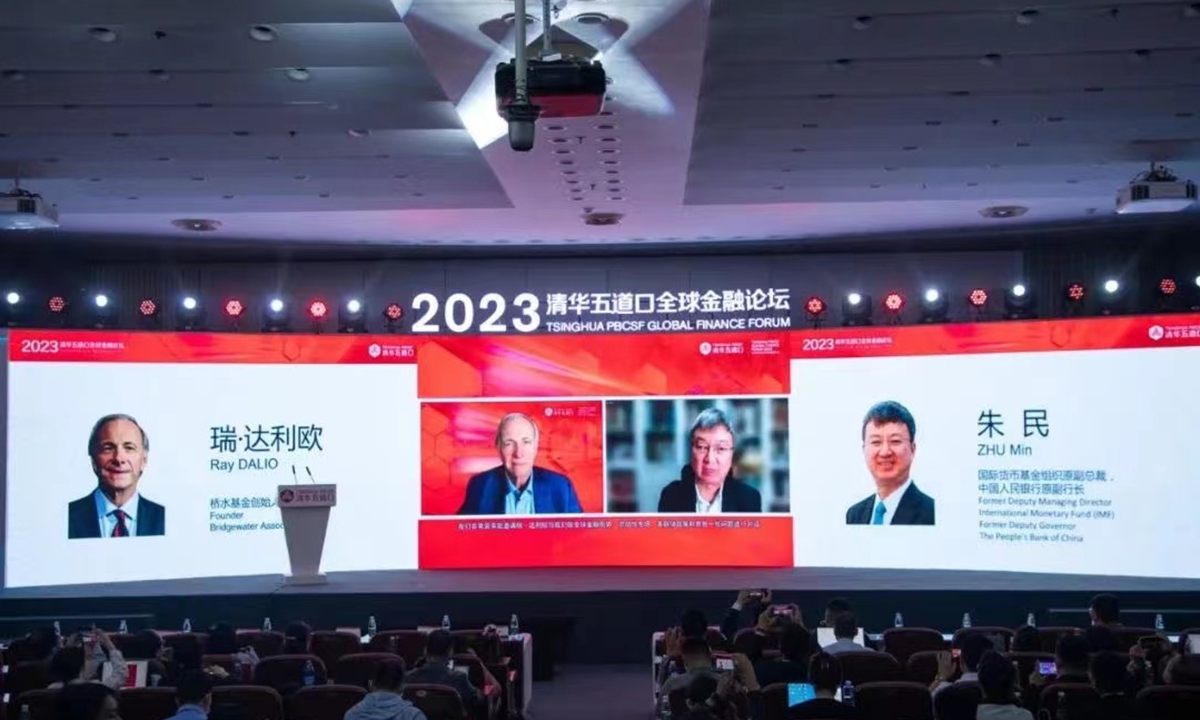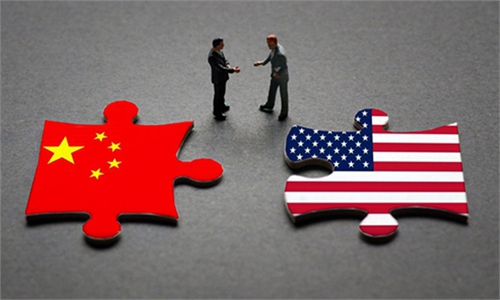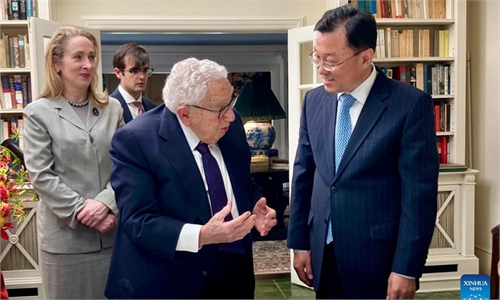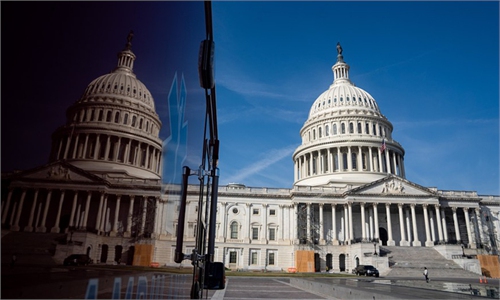
Ray Dalio, founder of Bridgewater Fund, talks to Zhu Min, former vice president of the International Monetary Fund, at the 2023 Tsinghua PBCSF Global Finance Forum on May 21. Photo: Tsinghua PBCSF
Editor's Note:After American billionaire Ray Dalio returned from his China trip, he published an article focusing on China-US tensions and offered advice for the world's two great powers. Is there an understanding of red -lines between China and the US? What will be brought to the two countries and global economy if China-US relations further deteriorate? How China and the US should do to tide over the transition period? Ray Dalio (Dalio), founder of Bridgewater, shared his view on these issues with Global Times (GT) reporter Wang Zixuan, as well as the ideal China-US relations in his view.
GT: After a 13-day trip to China, you warned that "the United States and China are on the brink of war... They are very close to crossing red lines," and encouraged the US and China to agree on mutual red lines. Why do you make such a suggestion?
Dalio: My perspective comes from my studying past wars and watching the current US-China competition evolving toward conflict and headed toward war in very classic ways. I saw that nobody who went into war, even those who were most boldly in favor of going into war, didn't regret it because of the terrible harm it inflicted on both sides, and that going into war occurred because of misunderstandings and miscalculations. It is for that reason that I believe that having clarity about the most dangerous issues and how to handle them would be very good.
GT: The tense US-China relations are affecting most countries and multinational corporations. Many US entrepreneurs and think tanks have warned that such confrontation is extremely harmful to both countries and the world. As a renowned investor, what kind of US-China relationship would you like to see?
Dalio: It is in both countries' interests, and the world's interest, for China and the US to have a win-win relationship rather than a lose-lose relationship while being assured that the other won't or can't inflict unacceptable harm on the other. While it is of course true that having good economic conditions and nurturing the entrepreneurial process leads great ideas to become great realities, the most important thing is to not fall into a state of terribly damaging each other. History has shown that the worst-case scenario of terrible wars (economic and/or military) came about because of small incremental damaging acts that produced much greater disasters than the things they were fighting over. That is why I believe that being crystal clear about red lines that clearly define what unacceptable harms are and figuring out the ways that each side can be assured that the other side could not inflict unacceptable harm on the opposing side would be a great accomplishment.
GT: You have mentioned in the China Development Forum and the Tsinghua PBCSF Global Finance Forum that we are in the cycles. Along with the economic cycles, there are also political cycles within countries and geopolitical cycles between countries, and these three forces, when combined, can lead to a turbulent transition period. How do you think China and the US or even the world should maintain wisdom, restraint and understanding to tide over the transition period?
Dalio: Yes, I think China and the US or even the world should maintain mutual wisdom, restraint and understanding. The outcomes will depend on whether our leaders and peoples have these qualities. They either have great wisdom or they don't have great wisdom. I think that the Chinese have great wisdom from thousands of years of civilization that is reflected in great writings of wisdom. The most important wisdom are about how people should be with each other to have things go well. There are also people in the US who have wisdom while others not so much. And of course, there are some differences in values and approaches, though the differences are much less than the similarities. We will soon see if there is enough wisdom to rise above our differences to produce continued evolution toward a better world.



